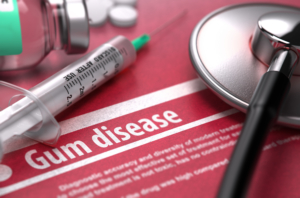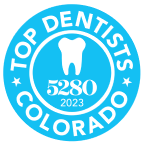
Periodontal disease remains the leading cause of tooth loss in the United States, according to the National Institutes of Health. If you have mild, moderate, or advanced stages of gum disease, the doctors and dental team of Metropolitan Dental Care offer multiple treatment options that can reverse gum disease symptoms.
Causes, Stages, and Symptoms of Gum Disease
Periodontal disease is an ongoing gum infection. The condition often results from poor oral hygiene habits and infrequent visits to the dentist.
The bacterial intrusion affects the teeth, gums, and jawbone. Left untreated, gum disease will advance from mild (gingivitis) to moderate and advanced stages. Each stage is classified by its symptoms.
Gingivitis is characterized by swollen and bleeding gums. If your gum tissue bleeds when you floss or brush, you likely have the earliest stages of gum disease. Moderate gum disease causes pockets of infection to form below the gumline. These pockets eventually damage your jawbone and cause gum tissue recession.
Advanced periodontitis is characterized by deep pockets and advanced separation of the gums from the tooth roots. Patients who have advanced periodontitis are at risk of tooth loss ad other complications.
During your visit to our Denver dental practice, one of our doctors will visually inspect your teeth and gums. A special tool is used to measure the depth of pockets along your gumline. Depending on the pocket depth and other factors, you will be diagnosed with mild, moderate, or advanced gum disease.
What are my treatment options?
Gingivitis can be treated with improved oral hygiene habits and regular dental cleanings. During your cleanings, a dental hygienist will remove plaque and tartar along the base of your teeth using ultrasonic equipment and fine hand tools. Your teeth will also be polished and treated with fluoride.
Our hygienists are equipped with the most modern equipment and techniques available. Our dental team follows comfort protocols that include: headphones, personal televisions, and even sunglasses.
More advanced stages of gum disease may require scaling and root planing. This non-surgical approach uses an ultrasonic scaler that removes buildup below the gum line. Before your treatment, your gums will be numbed with a local anesthetic. Some patients may require one of our hygienists to use a handheld scaler.
Root planing smooths the surface of the root to help gum tissue reattach to the tooth. Some patients may benefit from a topical antibiotic or prescription mouthwash. Your gums may feel sore for the first day or two following treatment.
Advanced stages of gum disease may require gum surgery. Dr. Norouzinia will make an incision in your gums to expose the infected roots of teeth. A comprehensive scaling and root planing will then be performed. The bone that supports the teeth may need to be reshaped before the incisions are sutured.
Is gum disease reversible?
Following treatment at our Denver dental practice, you will experience a reversal of the symptoms of gum disease. It is important to remember that gum recession and other forms of damage to your teeth and gums are not always reversible. If you have experienced the loss of significant amounts of gum tissue, our office can perform gum graft surgery to restore your smile and conceal tooth roots.
The presence of bacteria in our mouths is natural and sometimes beneficial. Maintaining good oral hygiene habits and visiting our dental office twice a year for cleanings and exams can prevent the return of gum disease.
Schedule Your Gum Disease Treatment Today
Gum disease is both preventable and treatable. We encourage all of our patients to take this harmful dental condition seriously. To schedule your next visit, please contact our Denver office online or call (303) 534-2626.

